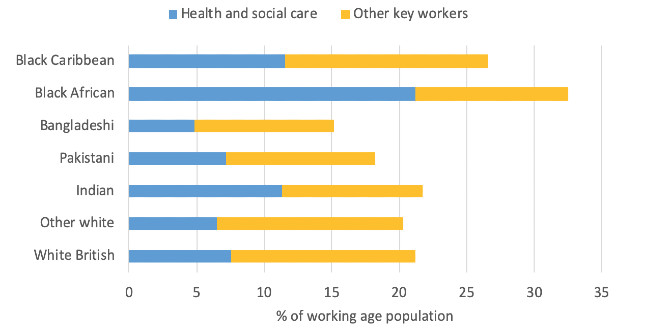We asked experts to react to the 2015 Spending Review, with a particular focus on the Conservative Party moving forward. Tom Quinn sees a pitch for swing voters and the centre ground. Simon Griffiths points towards George Osborne’s ability as a political tactician, and Tim Bale also argues that Osborne is on target to be the next Conservative Party leader. However, Rodney Barker wonders how long it will be until the policies and rhetoric of austerity come back to bite the Chancellor. Mark Garnnett agrees and raises a further crucial point: is the Office of Budget Responsibility on its way to becoming a political tool? And finally, our commentators seem to agree – Labour in Opposition is in trouble, and the less said about that little red book, the better.
Conservatives in the centre ground
 Tom Quinn, Senior Lecturer in the Department of Government, University of Essex
Tom Quinn, Senior Lecturer in the Department of Government, University of Essex
George Osborne’s autumn spending review represents a strong pitch for the centre ground of British politics. His U-turn on tax credits went much further than the anticipated modifications to the policy, ensuring that what might have looked like an embarrassing retreat now appears bold and responsive. Pragmatism won out over dogma. Along with his protection of police budgets, the Chancellor cleared the decks for his expected leadership bid when David Cameron steps down.
As for Labour, its problems go from bad to worse. It has lost its best line of attack against the government over tax credits. It’ll try to claim credit, but it is likely that worried Conservative MPs and tearful Tory voters on Question Time were more instrumental in changing government policy. Instead, Labour suffered yet another self-inflicted wound when the shadow chancellor, John McDonnell, quoted from Chairman Mao’s Little Red Book – ensuring that that was the only role Labour played in yesterday’s headlines. Labour’s deep internal divisions and the public criticism of Jeremy Corbyn by his MPs leave the party not looking like a credible government-in-waiting. It’s no wonder Osborne executed his U-turn – he removed the main reason that swing voters might have previously had for considering Labour.
__________
The Chancellor as political tactician
 Simon Griffiths, Senior Lecturer in Politics, Goldsmiths University of London
Simon Griffiths, Senior Lecturer in Politics, Goldsmiths University of London
In some ways, the Spending Review was a masterclass in statecraft from George Osborne. Just four months ago, in the Emergency Budget, Osborne promised swingeing cuts to benefits. That promise split the Labour Party and arguably led to Jeremy Corbyn’s victory as Labour leader, as new supporters signed up to the party to back the only candidate who had voted unambiguously against the cuts. Now, with the Labour Party divided and facing opposition from some of his own backbench MPs, Osborne has used the Spending Review to ditch his previous policies, claiming that this was a Spending Review from “the mainstream representatives of the working people of Britain”.
In making this u-turn, Osborne has occupied ground that his rivals in the Conservative Party sought to occupy. In particular Osborne’s abandonment of cuts to working tax credits stops Boris Johnson’s claim to be the guardian of working class Conservatives. Underlying all this are big questions about Osborne and the Conservative Party. What happens if the lower debt interest that gave Osborne some wiggle room on cuts does not last? Did he even mean to introduce the cuts that he claimed just a few months ago were essential to national economic recovery? And to what extent is Osborne prepared to compromise his belief in a more limited state in order to protect his personal political ambitions? At the moment, like Thatcher in her prime, Osborne knows just what he can get away with.
__________
The Chancellor as the next Conservative leader
 Tim Bale, Professor of Politics at Queen Mary University of London
Tim Bale, Professor of Politics at Queen Mary University of London
He’s even managed to get the credit for being sensible enough to execute a U-turn when he hasn’t actually done one. The small print shows he’s going to do a lot of what he wanted to do anyway by taking away money from new claimants as universal credit is rolled out to more people.
He has even managed to avoid – or at least give the appearance of avoiding – many of the cuts in spending that the Labour Opposition (inasmuch as such a thing can still be said to exist) had been warning about for weeks.
So while he’s still on course to shrink the state in a way that should please all but the most devout Thatcherite, he can also claim – maddeningly for his rivals – that he’s appealing to the vast majority of voters who don’t want government to disappear in a puff of smoke.
None of this makes Osborne a shoo-in as Cameron’s successor in 2019/2020. But if the economy holds up, and Labour keeps going from bad to worse, then this Autumn Statement has done him no harm at all.
The failing austerity story

Rodney Barker, Professor Emeritus at the Department of Government, London School of Economics
There’s no such thing as a free lunch, so Osborne is shifting costs from central government via (up to a point) progressive taxation, to citizens both directly and through local government. However it’s done, it’s a reaction to the failure of austerity as a policy, ahead of its increasing ill-health as rhetoric. As austerity’s race to the bottom starts to fall apart in practice, a growing proportion of the electorate are dismissing it as a principle.
At the start of his Chancellorship, Osborne was able to present austerity as the political and economic equivalent of sobriety, a good diet, and a prayerful life. The only people who would be hurt by it would be the two mythical monsters: bureaucrats and welfare scroungers. By the second term of office, the destination-free crusade of cuts was visibly and painfully hitting the lives, incomes, services, and wellbeing of wider and wider sections of the nation, and it was increasingly implausible to believe that austerity was, for the nation as a whole, no more than a sharp tonic.
When Osborne’s policies are turned about by his own backbenchers who, if nothing else, have an eye for their own marginal constituencies, the damage to the government’s credibility and the dismay of its parliamentary members is likely to lead first to growls of disappointment, and then to a search for someone to blame. The Chancellor’s finger prints are all over the weapons of grievous social bodily harm.
__________
Politicizing the Office for Budget Responsibility
 Mark Garnett, Senior Lecturer at the Department of Politics Philosophy and Religion at Lancaster University
Mark Garnett, Senior Lecturer at the Department of Politics Philosophy and Religion at Lancaster University
It would be churlish to attribute Osborne’s success entirely to McDonnell’s ill-starred intervention. His own speech had been a masterpiece of audacity, featuring two political handbrake turns which were greeted with acclaim rather than derision. The fact remains, however, that Osborne has set a very dangerous precedent for the remainder of his period as Chancellor. If the icy logic of austerity can be breached in the cases of tax credits and police funding, it will be much more difficult to resist other claims for exemption.
Osborne, of course, claimed that new forecasts from the Office of Budget Responsibility gave him unexpected room for manoeuvre. But by combining these ‘objective’ findings with overtly political decisions, Osborne runs the risk of damaging the OBR’s credibility. This was probably an accident waiting to happen, but it seems an unacceptably high price to pay for short-term political damage-limitation.
Whatever the merits of Osborne’s recent decisions, they are bound to be interpreted in the light of his much-publicised leadership ambitions. From this perspective, it would be more helpful to Osborne if Labour was capable of putting up an effective fight; and on recent polling data, the Chancellor needs all the help he can get. As for his party, it would be well advised to save its celebrations until after the Oldham West and Royton by-election on December 3rd.
__________
Please note: The article represents the views of the authors and not those of British Politics and Policy, nor the LSE. Please read our comments policy before posting.
(Featured Image Credit: altogetherfool CC BY-SA 2.0)







